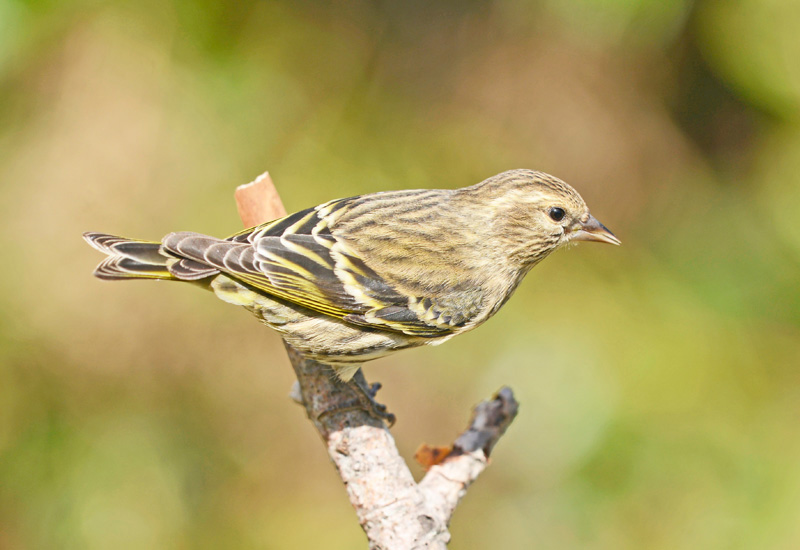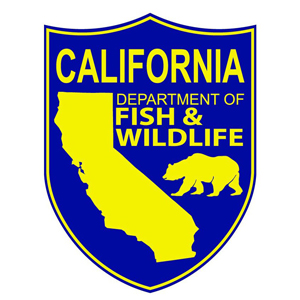
Pine Siskin. Photo credit: Wikimedia Commons
February 9, 2021 - Since December, the California Department of Fish and Wildlife (CDFW) and wildlife rehabilitation centers have been inundated with calls from residents  who are finding sick or dead finches at bird feeders. Most reports have come from locations on California’s Central Coast, the San Francisco Bay Area and Sierra Nevada communities. CDFW’s Wildlife Investigations Laboratory has evaluated birds from several locations and determined the cause of illness to be Salmonellosis, a disease cause by Salmonella bacteria.
who are finding sick or dead finches at bird feeders. Most reports have come from locations on California’s Central Coast, the San Francisco Bay Area and Sierra Nevada communities. CDFW’s Wildlife Investigations Laboratory has evaluated birds from several locations and determined the cause of illness to be Salmonellosis, a disease cause by Salmonella bacteria.
Pine siskins, a species of finch that winters in California, are the primary species affected by the outbreak. The disease has also been reported in smaller numbers of lesser goldfinches and American goldfinches.
“Salmonellosis occurs periodically in pine siskins in some winters throughout their range. When large numbers of pine siskins congregate, the disease can spread rapidly causing high mortality. Most birds die within 24 hours of infection,” said CDFW Senior Environmental Scientist Krysta Rogers, an avian disease specialist.
Birds become infected with Salmonella when they ingest food, water or come into contact with objects (e.g., bird feeders, perches, soil) contaminated with feces from an infected bird. Sick birds often appear weak, have labored breathing, and may sit for prolonged periods with fluffed or ruffled feathers.
Salmonellosis is almost exclusively reported from locations with bird feeders where birds congregate. Residents can help reduce disease transmission by removing bird feeders and bird baths. Allowing birds to feed on natural seeds rather than at bird feeders reduces contact between birds and helps slow spread of the disease.
Residents can report dead birds to CDFW’s Wildlife Investigations Laboratory using the mortality reporting form, which helps biologists monitor the outbreak. Disposable gloves should be worn and hands should be thoroughly washed after disposing of dead birds, and handling of bird feeders and bird baths. If sick birds are found, please contact your local wildlife rehabilitation center for advice.
Source: CDFW








